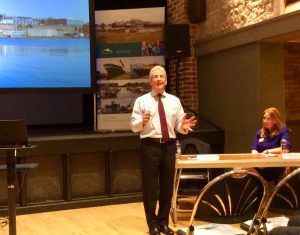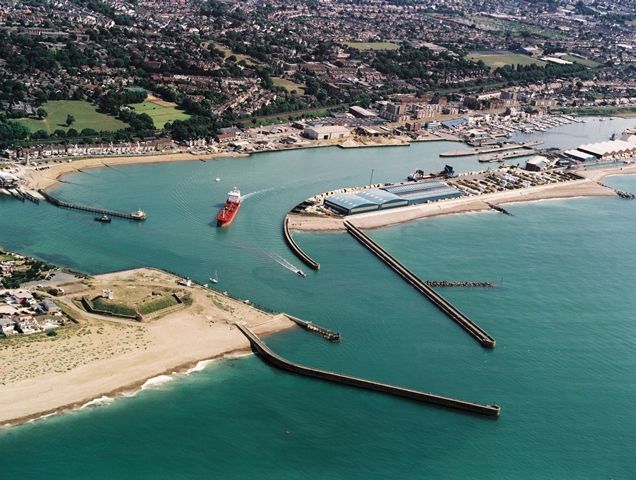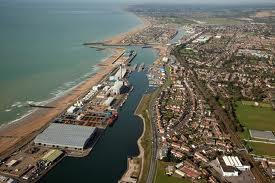Shoreham Port lands more scallops than anywhere else in Britain – part of a multimillion-pound catch of fish and seafood.

But the port authority’s annual public meeting this evening heard that timber, steel, cereals and aggregates made a huge contribution to the local economy too – and even oil.
Chief executive Rod Lunn said: “The port is doing very well. Despite everyone getting concerned over Brexit, the port is trading very well.”
Despite fewer ship movements, the cargo tonnage last year was almost exactly the same as the year before at just over two million tonnes.
And despite some anxieties over future trading arrangements with our near neighbours in the European Union, the outlook remained positive, Mr Lunn said.
As part of the annual Brighton Fringe, 360 people a day took a boat tour of the harbour. And there are more tours planned in July, with just a few remaining spaces available.
As a trust port, Mr Lunn said, the profits could be reinvested in the local community. Recent examples included bus shelters on the A259 and a port-side noise monitor.
He also thanked everyone who sent in the many photographs received at the port’s head office.
The meeting at the Barn Theatre, Southwick, this evening (Tuesday 15 May) heard that turnover – or revenues – totalled £13.3 million in 2017, up from £13.2 million in 2016.
A rise in costs left an operating profit of £424,000, down from £505,000 a year earlier, and a pre-tax profit of £109,000 last year.
Pre-tax profit for the previous year totalled £5.44 million, boosted by the proceeds of property disposals.
About 100 people turned out on a sunny evening to hear the latest news from Mr Lunn and his colleagues.
They included new trust port chair Amber Foster, long-serving harbour master Julian Seaman and engineering director Tony Parker.
Mr Lunn noted the contribution of Stuart Condie who retired at the end of December after three years as chair and seven years on the board.
As well as the port’s neighbours and users and representatives of local community groups, the audience also included the port’s former development director Peter Davies.
Questions were asked about noise, the £30 million cost of a new lock and traffic problems in the area around the port.
Mr Lunn pointed out that each vessel carrying freight along the coastline, took hundreds of lorries at a time off the roads.
He recently stepped down as chair of the British Ports Association, the national trade body.
But despite serving a two-year term, which involved meetings with ministers and officials in London, he confessed to being no wiser about post-Brexit rules.
In the port authority annual report he wrote: “We remain in close contact with the Department for Transport and various ministers in order to keep pushing for clarity and a workable solution for all concerned.”










Not much timber moving through the port just now with construction in the doldrums.